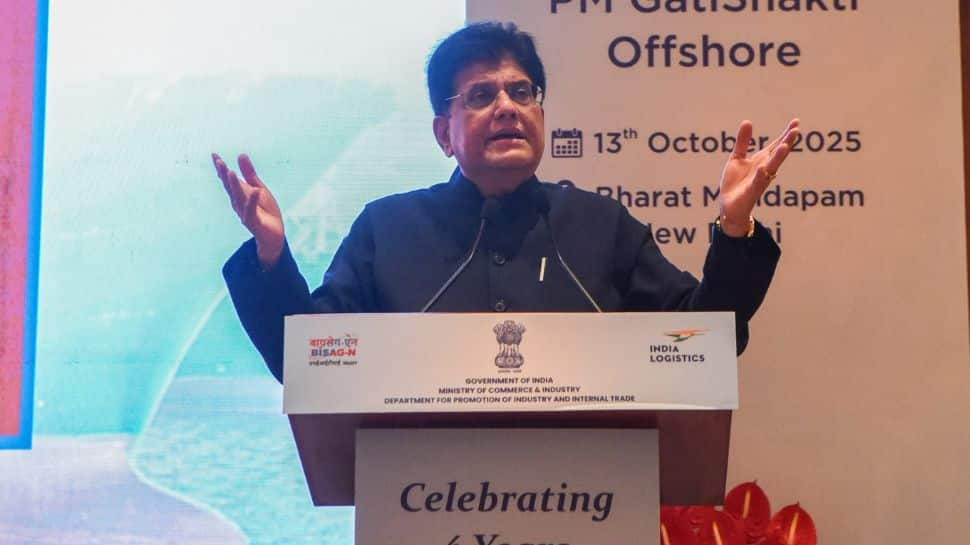India Set to Exceed IMF Growth Forecasts, Says Minister Goyal
Union Minister Piyush Goyal has expressed confidence that India will not only meet but potentially exceed the International Monetary Fund’s revised growth projection of 6.6% for this year, following a strong 7.8% GDP expansion in the first quarter.
Key Takeaways
- IMF upgraded India’s growth forecast from 6.4% to 6.6%
- Q1 GDP growth reached 7.8%, exceeding projections
- Chemical sector aims for $1 trillion by 2040
- GST rate cuts boosted consumer spending and collections
Economic Momentum Builds
Speaking at the Indian Chemicals and Petrochemical Conclave 2025, Goyal highlighted that India’s growth rate is nearly double the projected global average of 3.2%. He attributed this performance to increased consumer spending, infrastructure investment, and reduced GST rates that have stimulated economic activity.
“The International Monetary Fund has recently revised its growth estimates for India, increasing the projected growth rate from 6.4% to 6.6% for this year,” Goyal told reporters at Bharat Mandapam.
“This reflects India’s strengthened economy, the country’s confident atmosphere, increased consumer spending due to reduced GST rates, and accelerated investment in infrastructure.”
Sectoral Vision: Chemicals as Growth Engine
The minister outlined an ambitious roadmap for the chemicals and petrochemicals industry, urging leaders to target $1 trillion in size by 2040. This would significantly contribute to India’s goal of becoming a $35 trillion economy by 2047.
Goyal emphasized that the sector is “omnipresent in every facet of modern life” and must drive innovation to power India’s growth. He called for greater ambition in national planning, stating: “Our biggest challenge as a nation is that we often don’t aim big enough.”
Policy Reforms and Industry Response
A CII report released during the conference projected the chemical industry could reach $400-450 billion by 2030 and $850-1,000 billion by 2040. The sector currently contributes 7% to India’s GDP and 14% of industrial output.
Industry leaders welcomed recent policy initiatives including the HSN Code Mapping Guidebook and simplified regulatory pathways. Chandrajit Banerjee, CII Director General, highlighted how schemes like PLI, PM Gati Shakti, and the National Logistics Policy have strengthened the sector’s competitiveness.
R Mukundan of Tata Chemicals emphasized that Free Trade Agreements are creating new opportunities for R&D and technology partnerships, positioning India as a future chemical manufacturing powerhouse.
With strong fundamentals and sectoral reforms, India appears well-positioned to maintain its status as one of the world’s fastest-growing economies.




